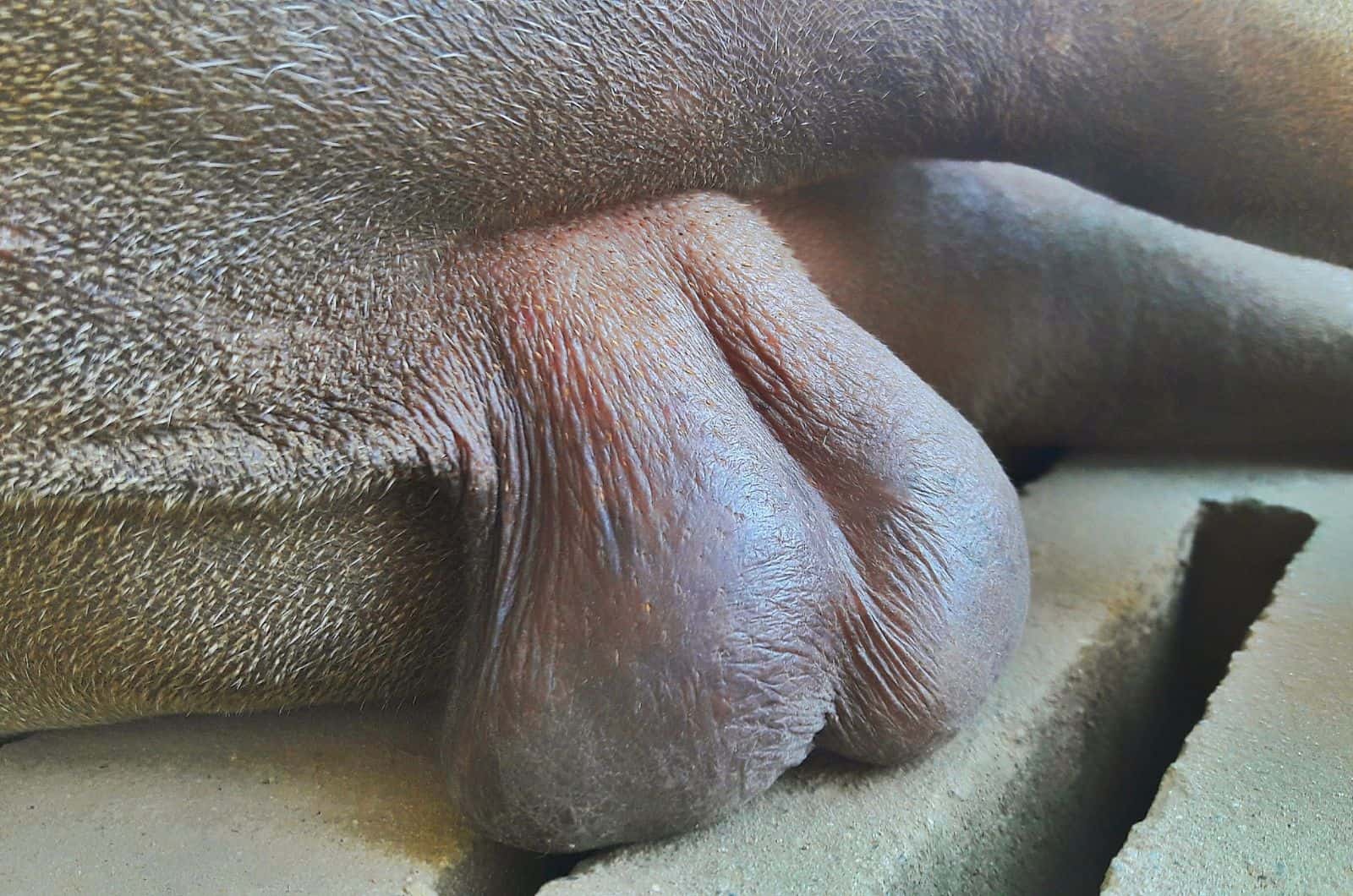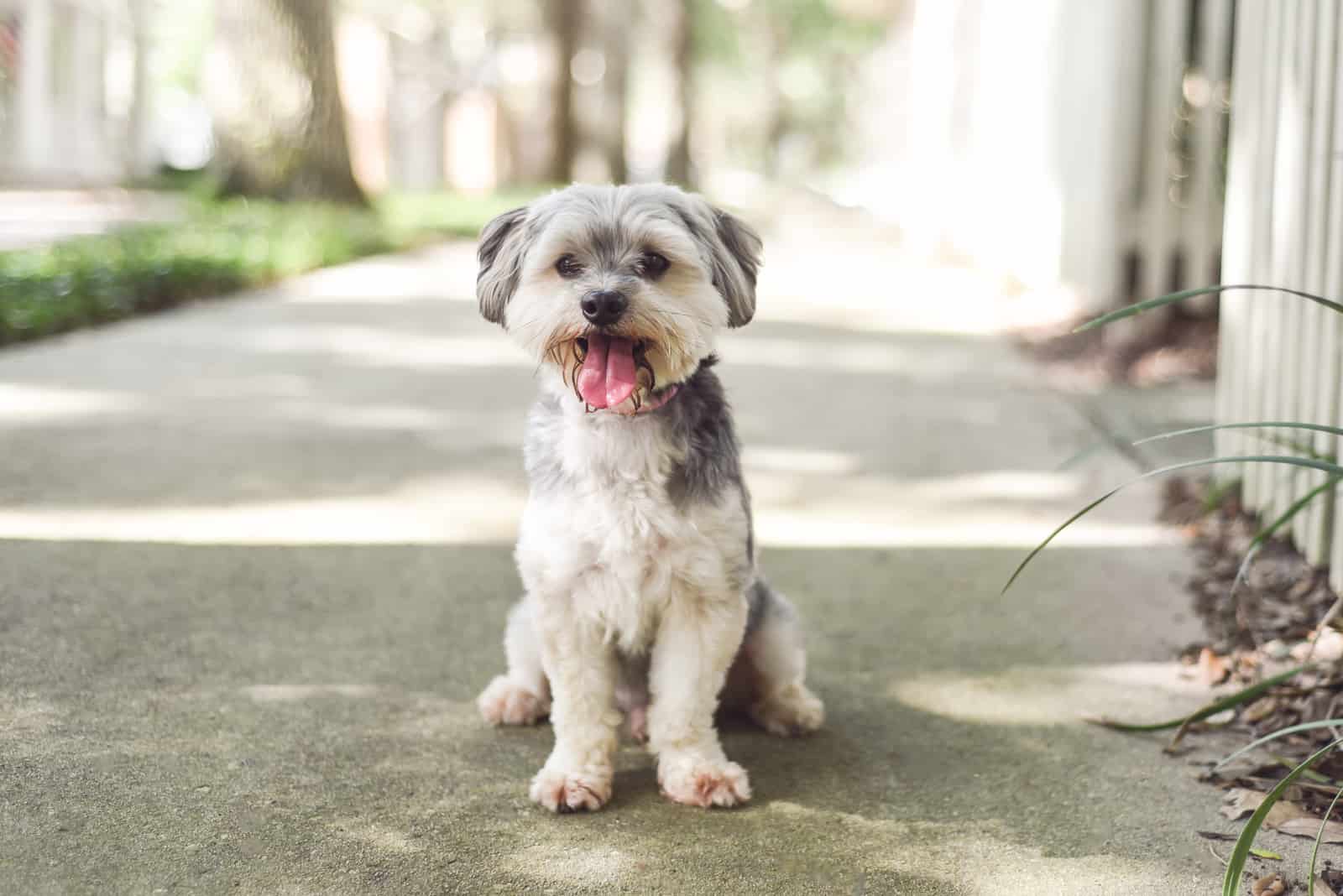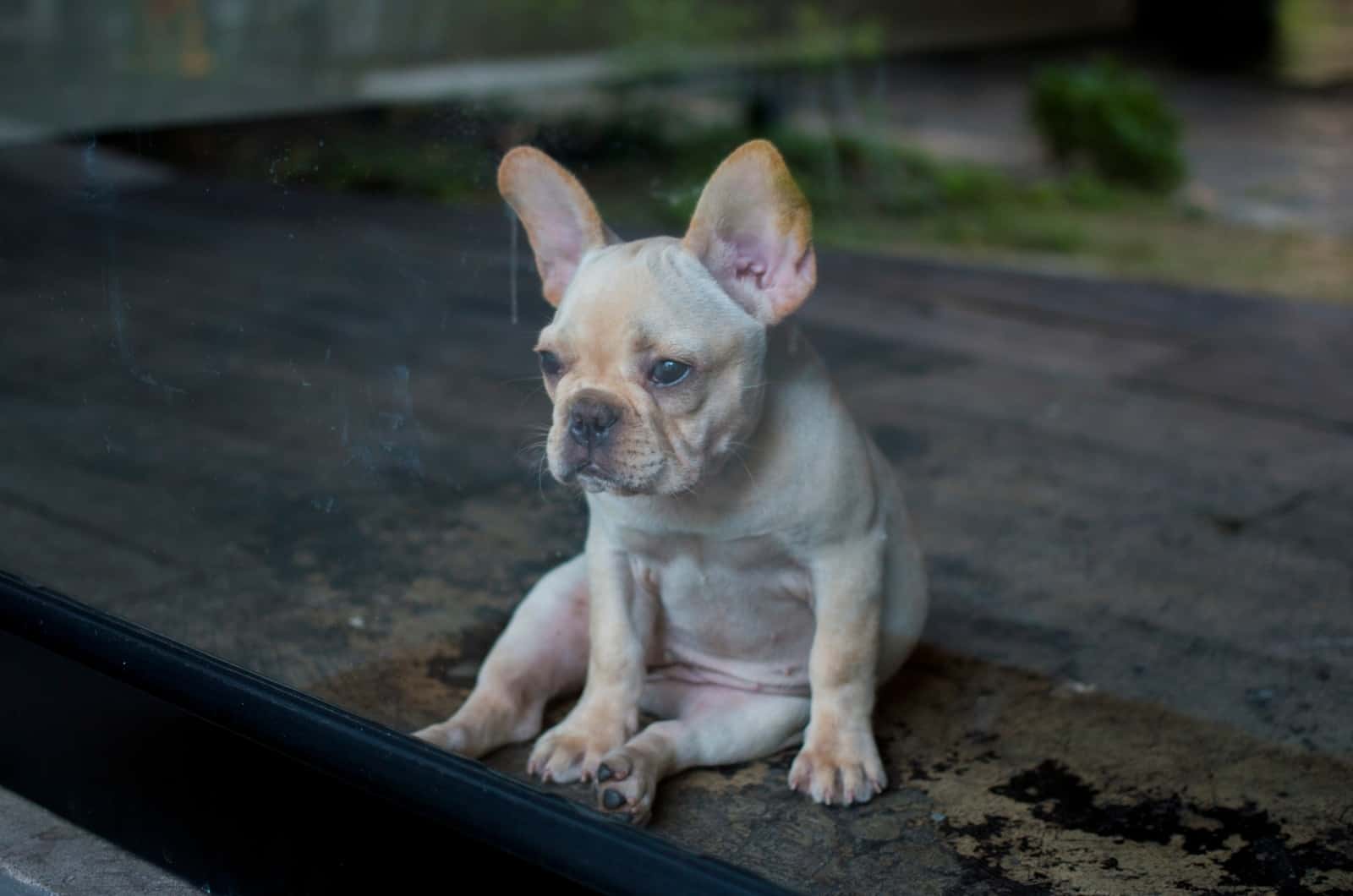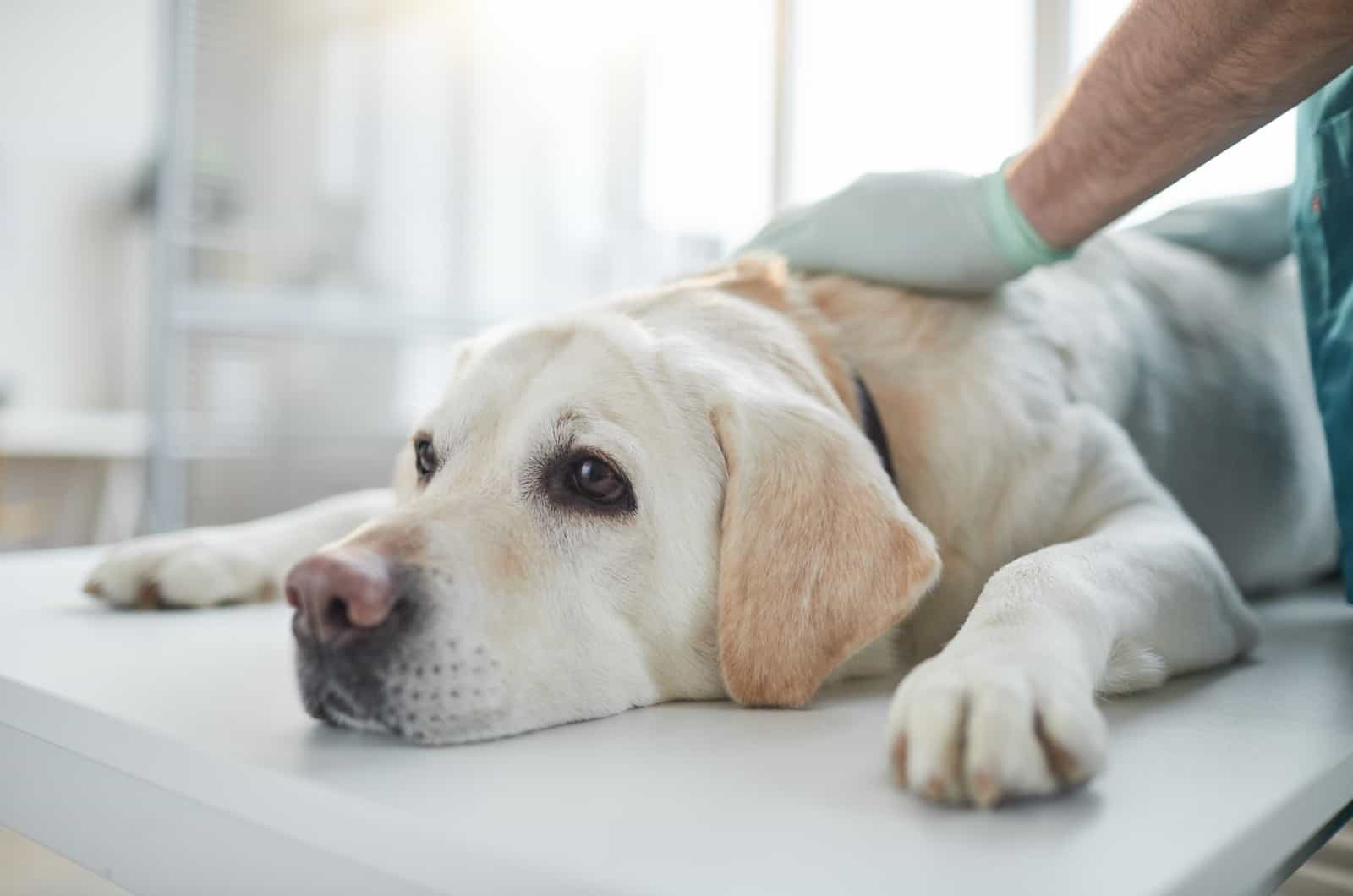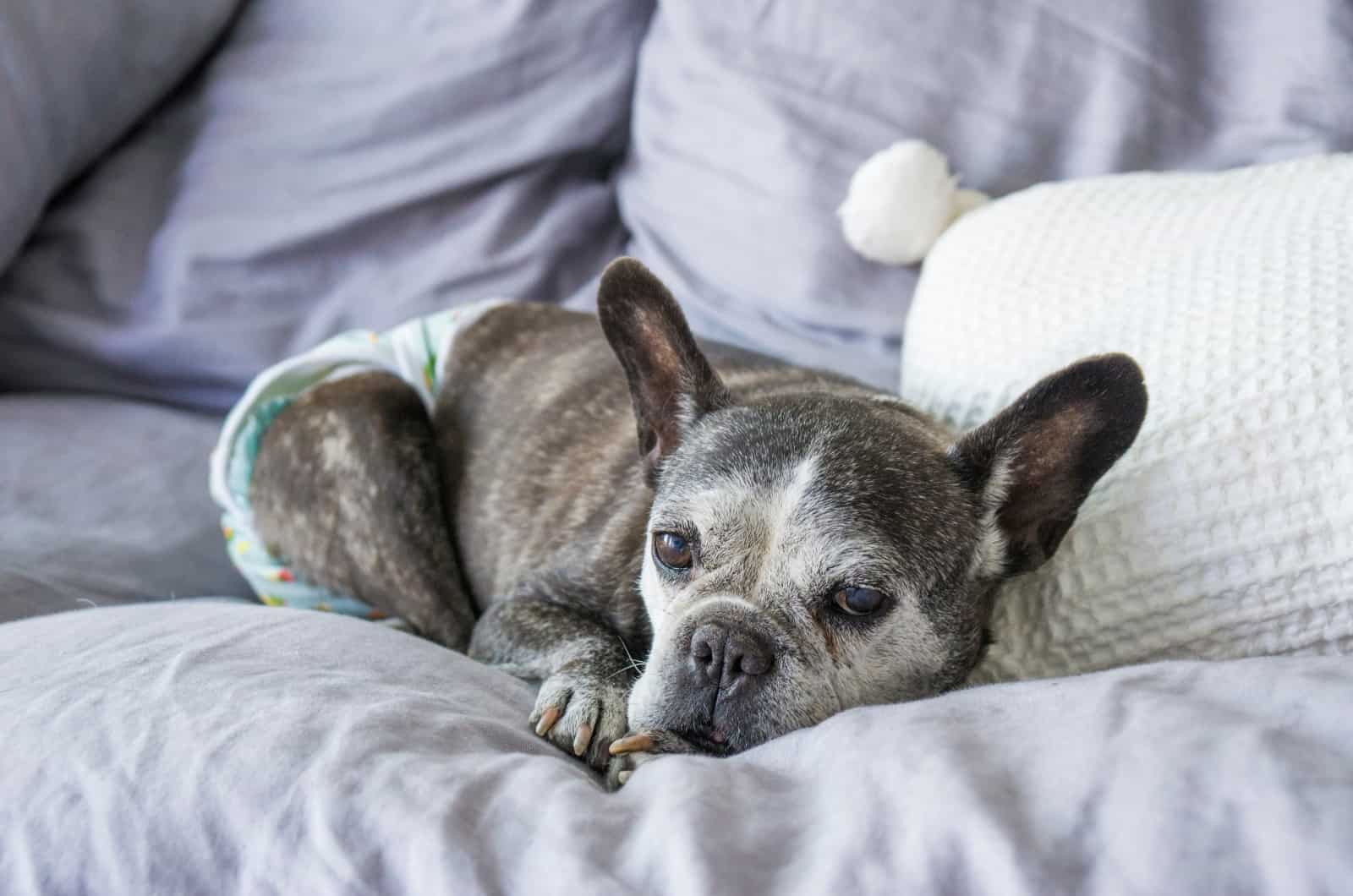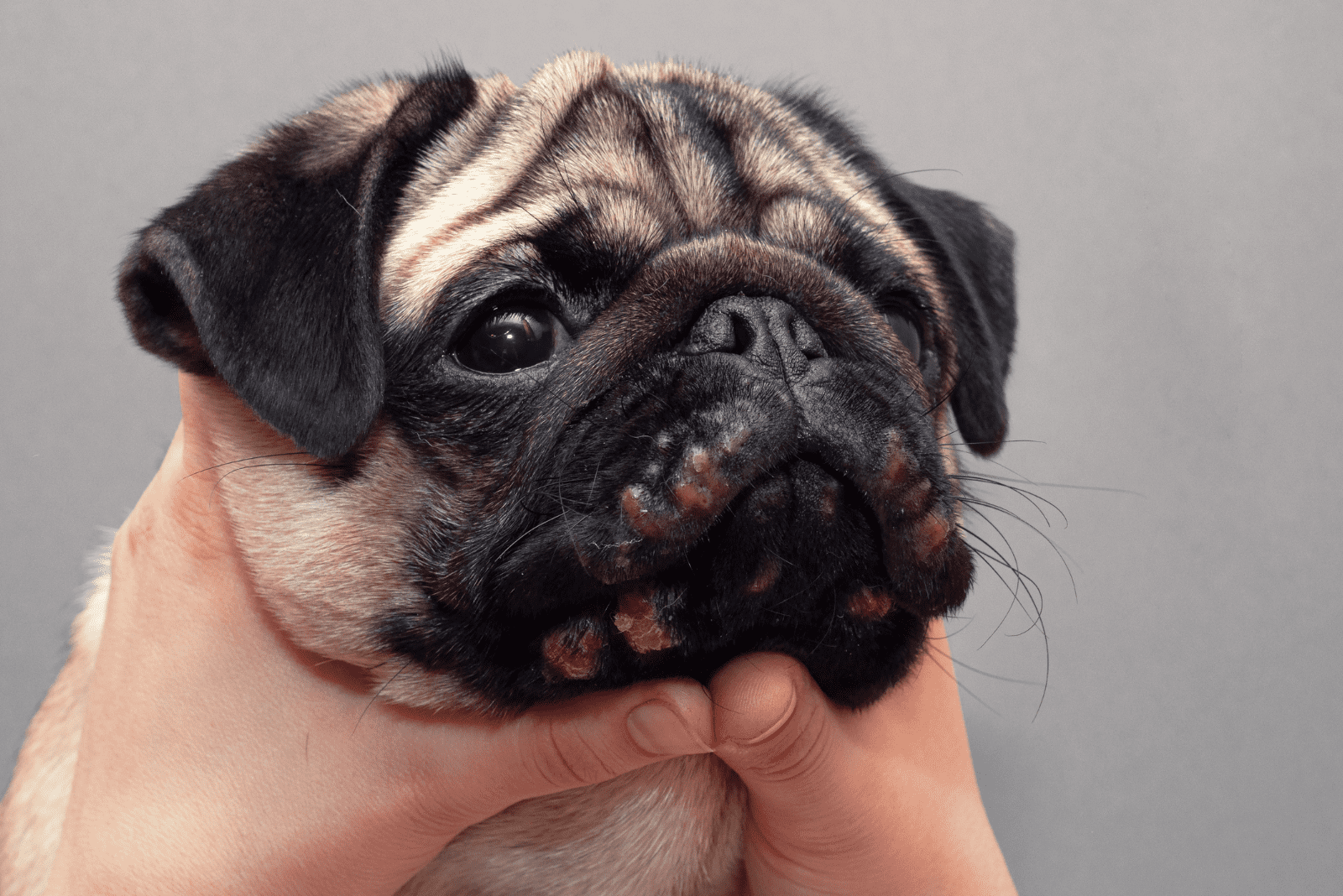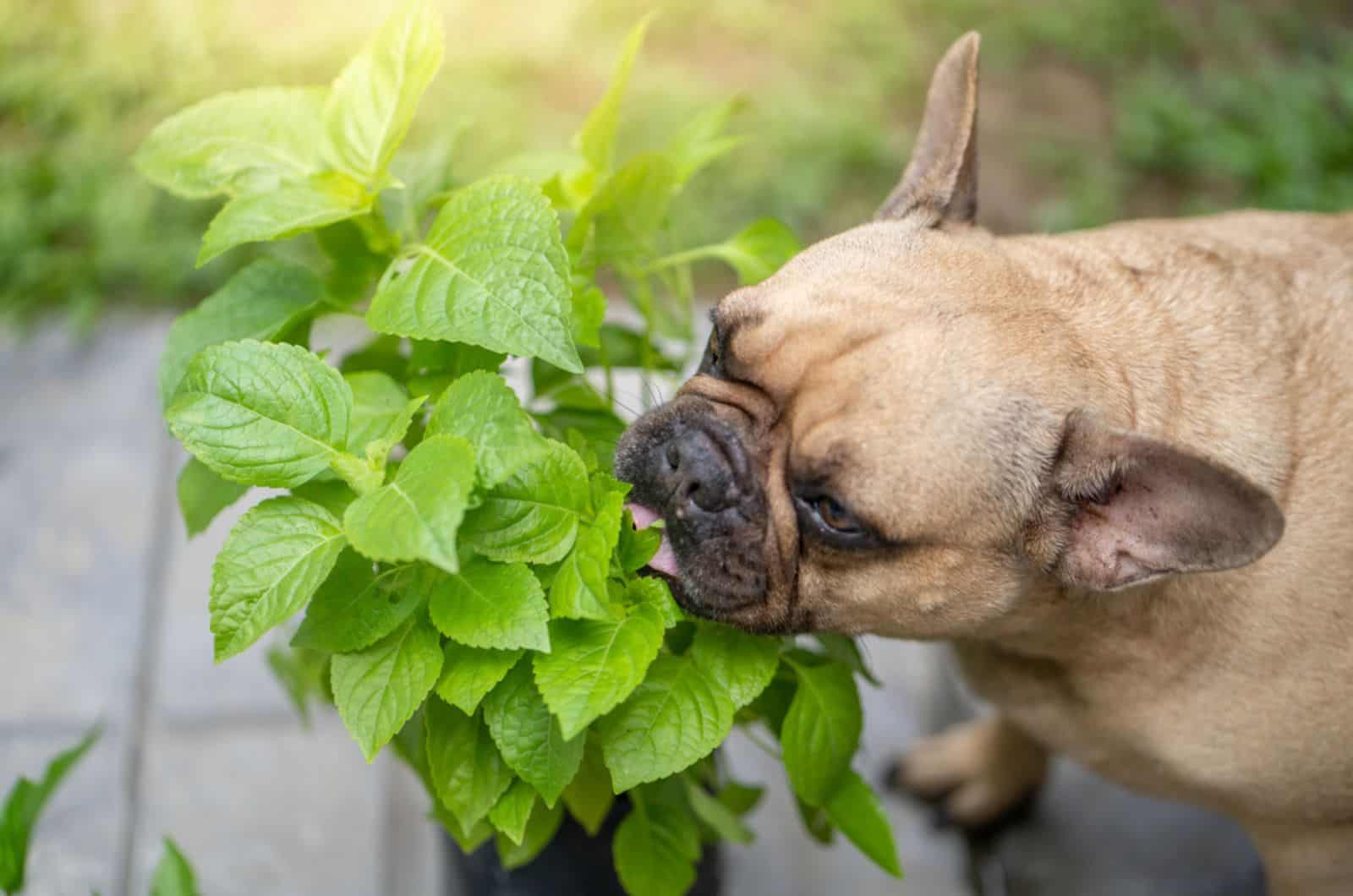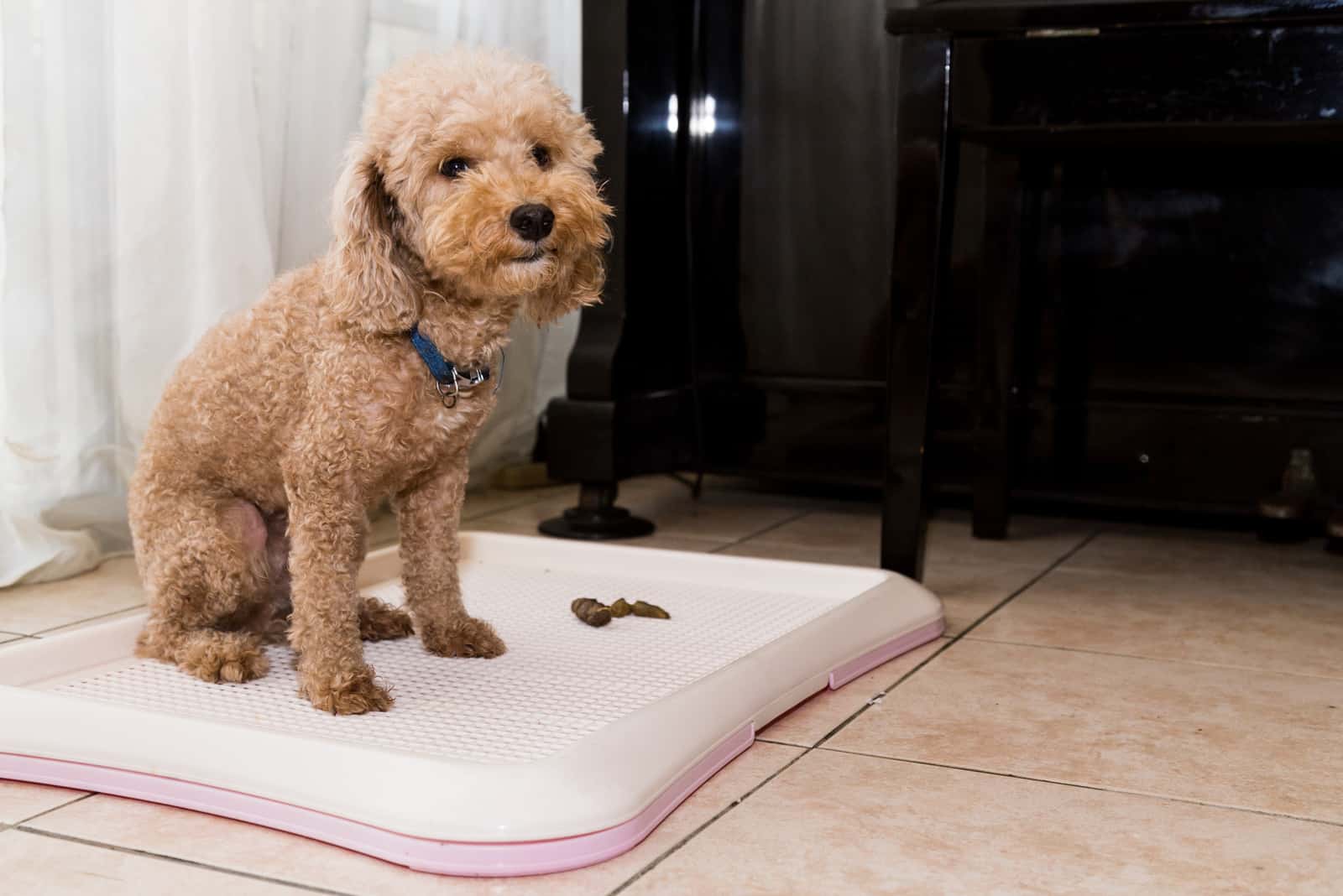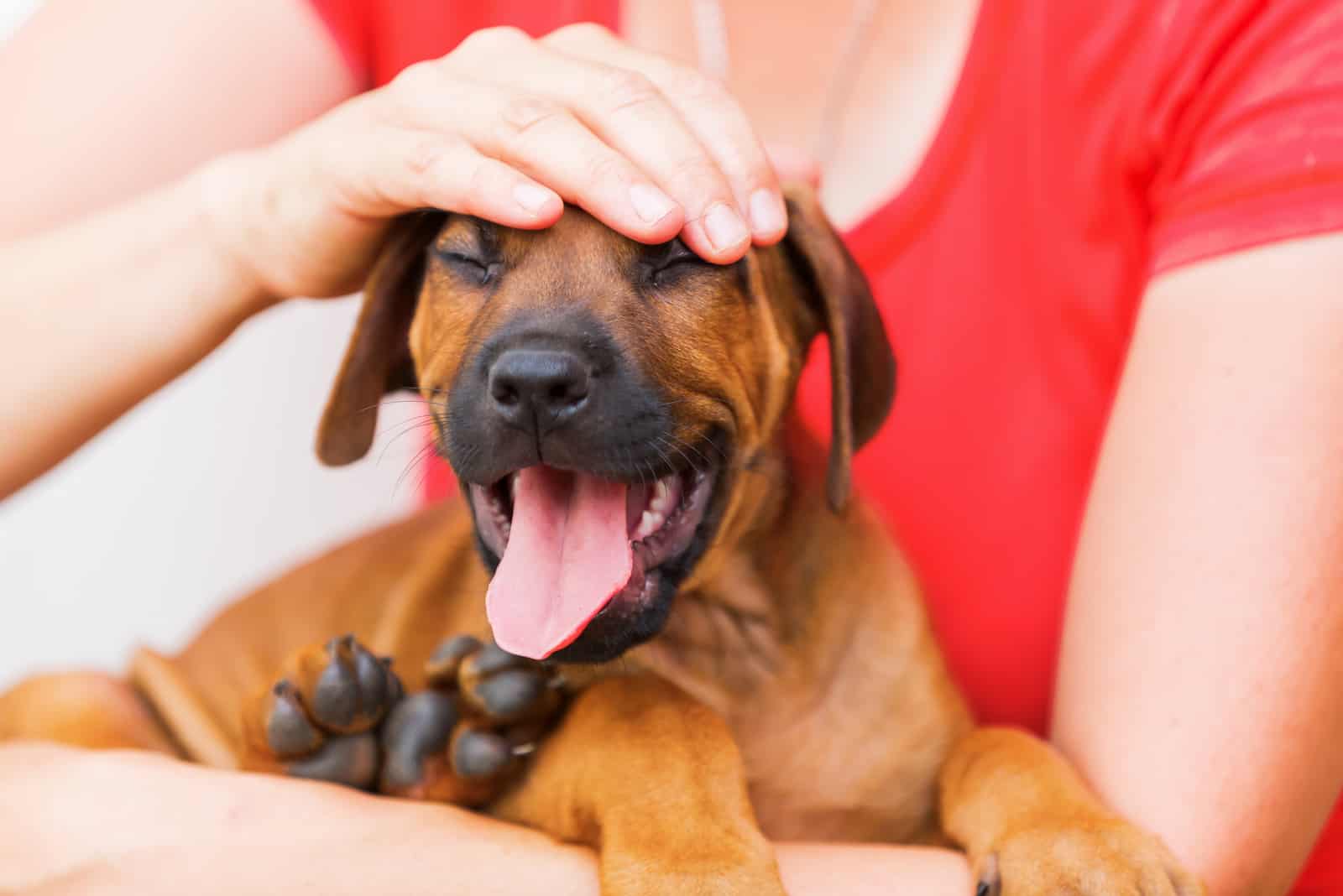The death of a pet isn’t something we like to dwell on, as we all want our furry companions to live forever. The average lifespan of dogs, in general, is given as 10–13 years. So how do Goldendoodles compare? Not too badly, as it happens, with an average of 12–15 years, possibly more.
Don’t stop reading there, though, as this figure is really just a vague generalization based on data that’s changing all the time. There are hundreds of factors that determine how long a dog might live. Of course, there’s an element of luck (or chance) involved too! Try as you might, accidents and injuries are sometimes unavoidable.
One of the major factors affecting your dog’s lifespan is the level of care and commitment you invest in them. It isn’t enough to assume that your dog will fall somewhere in the average life expectancy and leave it at that. It’s your responsibility to help them enjoy a safe, happy, and healthy life and to extend that life beyond the average figure as far as possible.
We’re going to look further into the Goldendoodle lifespan to better understand the breed and give some tips on helping you ensure that they stick around for many years to come.
What Is A Goldendoodle Dog?

Think of the best bits of a Golden Retriever , then add them to those of the Poodle , and that’s the Goldendoodle !
This adorable hybrid dog , also known as the Groodle , has been bred in large numbers * since the 1990s. In that time, it has made its way into the hearts of dog lovers everywhere. They make excellent family pets , therapy dogs , and assistance dogs.
*Monica Dickens, great-granddaughter of Charles Dickens, was one of the first people to cross the two breeds back in 1969.
Despite the name, they have a beautiful fluffy coat that doesn’t only come in gold. You can find them in black, white, red, chocolate, cream, brown, and apricot. They can even have different patterns, such as merle, parti, sable, brindle, and phantom!
They come in three main sizes: mini, medium, and standard Goldendoodle , although there are two unofficial sizes relating to the mini, known as teacup and toy .
These three sizes of mixed breed designer dog are created by crossing a purebred Golden Retriever with a Standard Poodle , smaller-size Poodles , or even the Toy Poodle / Miniature Poodle .
Here’s a guide to give you an idea of size:
Mini Goldendoodle – height 13–20 in (33–50.8 cm), weight 15–35 lbs (6.8–15.87 kg)
Medium Goldendoodle – height 17–20 in (43–50.8 cm), weight 30–45 lbs (13.6–20.41 kg)
Standard Goldendoodle – height 20–24 in (50.8–60.96 cm), weight 50–90 lbs (22.67–40.82 kg)
Besides many sizes, Goldendoodles come in a lot of generations, as a result of breeding and back breeding. That’s why we recognize F1, F1b, F1bb, F2, F2b, F2bb, F3, and multigen Goldendoodles.
The beauty of this is that you can have all the delightful traits of this amazing breed in a size to suit you! However, the size also affects the average lifespan .
Miniature Goldendoodle Lifespan

In general, small dogs live longer than large ones, and this extends to the Goldendoodle . On average, this adorable mini-pooch will live between twelve and fifteen (or sixteen, according to some reports) years. The unofficial Toy Goldendoodle fares even better, with a life expectancy of thirteen to seventeen years!
Medium Goldendoodle Lifespan

In the middle, we have the medium-sized teddy bear dog, which falls into the generally accepted average of twelve to fifteen years. This is still higher than the overall average lifespan for most dogs, and it is thought that this is due to hybrid vigor. This is basically the introduction of fresh genes that the Poodle adds to the crossbreed , resulting in healthier pups.
A similar effect can be seen in other Doodle breeds, such as the Labradoodle .
How Long Do Large Goldendoodles Live?
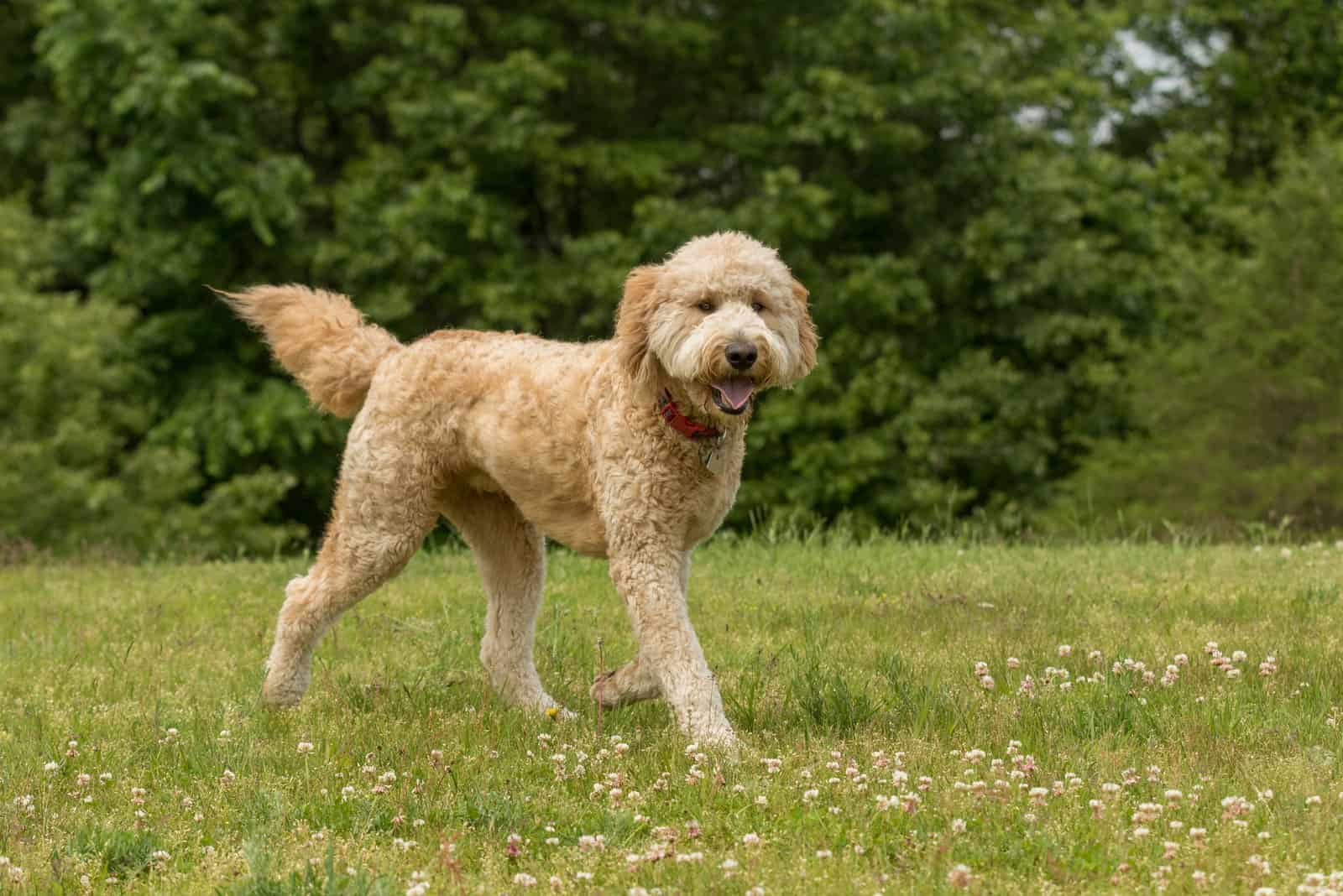
As you might expect from what we said above, the Standard Goldendoodle’s lifespan is slightly shorter at eleven to fourteen years.
There’s quite a wide variation in the larger Groodles , though, so this is a pretty general figure. With the right level of care and attention, there’s no need to worry that they’ll be leaving you too soon.
Whichever size you choose, you can boost their chances significantly by giving them the right mix of diet, exercise, and love.
Are Goldendoodles Hypoallergenic?

One of their most endearing qualities is the curly or wavy coat, which is often referred to as hypoallergenic , making them a good choice for allergy sufferers. However, in recent times, the term has taken on a new meaning as our understanding of the science behind allergies has improved. The fact is, the word hypoallergenic has often been used to describe something that is allergen-free, but this is incorrect.
Allergic reactions are caused by proteins that our bodies mistake for potentially harmful substances, so our immune systems overreact and produce histamines that attack the allergens vigorously. In relation to dogs, the proteins are in the saliva, dander, and urine, so it is not the dog’s coat that people are allergic to, but rather these other substances that can stick to it.
Goldendoodles are also sometimes referred to as non-shedding . Again, this is incorrect. Every dog will shed hair to some degree, though some shed less. Allergic reactions can be reduced by regular grooming and keeping the dog clean, as well as by investing in a good vacuum cleaner designed to pick up pet hair. Your dog will definitely benefit from a visit to a professional groomer once every six months or so, just to keep that coat in tip-top condition.
So, be careful when you see a dog labeled as hypoallergenic or non-shedding. All dogs carry allergens and shed hair to some extent, it’s just that you are less likely to react to some breeds than others because contact with the allergens is reduced, but there are no guarantees!
Goldendoodle Temperament And Personality

The keyword that springs up time and again when researching Goldendoodles is: friendly.
Now, you might have read this about other breeds, but this Golden Retriever Poodle mix takes it several steps further. Where other breeds are described as ‘ friendly, but wary of strangers, ‘ the Goldendoodle will welcome both familiar and unfamiliar faces!
They are outgoing, bright, cheerful, playful, affectionate, smart, and gentle.
You have to start asking yourself if this is the best dog breed ever!
They certainly make fantastic family pets and are particularly suited to the role of guide dogs and therapy dogs.
There’s no need to worry about other pets in the home, such as small dogs or cats, either. This breed does not have a strong prey drive and will quickly become best pals with other animals in the home.

Photo from @sweetlifeofkulfi
However, here’s where you have to play your part: Goldendoodles are a highly social dog breed and need to be with people all the time. Without that continual socialization , they can develop behavioral problems, such as excessive barking, becoming fearful and wary, or jumping up at people.
They are also smart and energetic, so you’ll need to make sure they are kept active and have enough mental stimulation to keep them happy. They love long walks and runs, as well as lengthy and vigorous playtime. They also love a good swim and will always head straight for the nearest water! These dogs are ideal for moderately active families that have a healthy balance between indoor and outdoor activities. This is no couch potato!
What has this got to do with the Goldendoodle lifespan ? Everything! Ensuring that they have the stimulation and exercise they need will help keep them healthy.
Active, intelligent dogs that are fed a healthy diet of good quality dog food and are given enough exercise and mental stimulation are far more likely to remain in good health and live a longer life .
What Health Problems Do Goldendoodles Have?

Like all dog breeds, the Goldendoodle lifespan can be affected by sickness and disease. Here’s a selection of the most common ones that are found in Goldendoodles:
• Hip dysplasia – caused by a poorly-formed joint that makes the bones rub together. Arthritis sometimes develops in old age, and surgery is the usual remedy, replacing the entire joint with a plastic and metal one that works as good as (or better than!) the original one.
• Ear infections – warm, moist folds in floppy ears are attractive places for bacteria to accumulate. These can be mild but, if not treated, can make their way into the inner ear, where they can cause serious problems. It is wise to get those ears checked and cleaned regularly as part of their grooming regime.
• Progressive retinal atrophy – actually a group of diseases rather than one single disease, this gradually attacks the dog’s eyesight. Night vision is the first to be affected, but over time, the dog will struggle to see in daylight, and complete blindness will follow. This condition is inherited and is usually late-onset. There is no treatment as yet, but most dogs seem to manage well. Some dog owners use antioxidant and vitamin supplements, and although there’s no definite proof that this has any effect, it is thought to slow the formation of cataracts.
• Von Willebrand’s disease – a protein deficiency that stops blood from clotting normally. This can be dangerous in cases of injury, surgery, or even the simple loss of a tooth, as the open wound will bleed profusely. There is no known cure for this hereditary disease, but it can be treated with blood transfusions, clotting sponges, or styptic powder and regulated through medication. Reputable breeders will have a screening program that tests for this condition.
• Cancer – one of the things that dog owners dread to hear the most. For more information, read on to the next heading.
What Do Most Goldendoodles Die From?
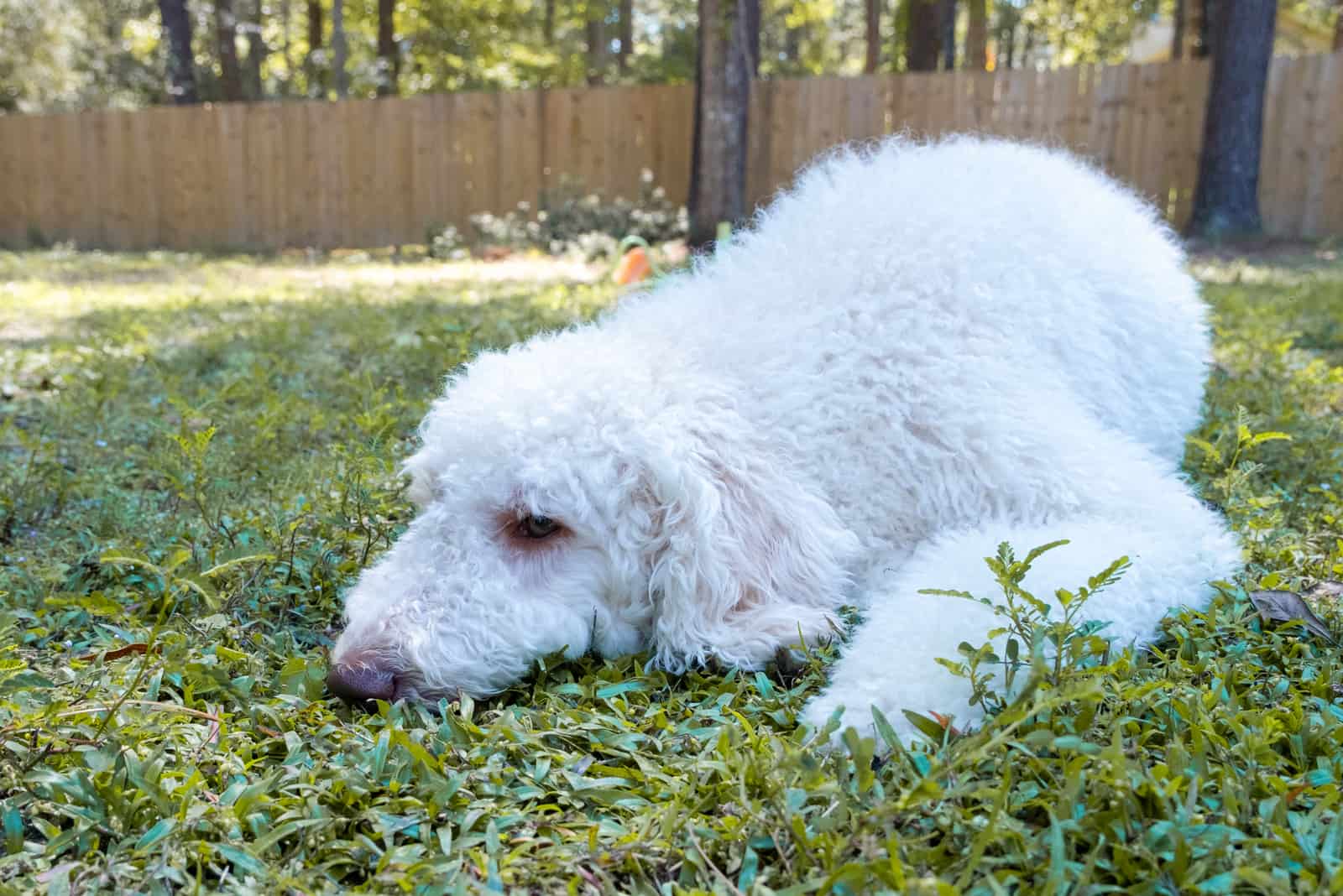
Cancer is probably the number one thing that shortens the Goldendoodle lifespan.
Sadly, the Golden Retriever is particularly vulnerable to certain forms of cancer, which affects an estimated 60% of dogs in this breed. Because of this, the Goldendoodle may be prone to developing it as well.
To reduce the chances of your Goldendoodle puppy developing this or any other serious health issues , always seek out reputable breeders . Always avoid using backyard breeders and puppy mills , as they rarely keep adequate records and tend to be motivated by profit rather than the welfare of the animals.
Ethical breeders will have health testing programs in place to check parent breeds for potential health problems . Many of them have a special interest in the breed they have chosen and will often invest heavily in making sure that the breed continues to thrive, and this means they need healthy dogs!
How Old Is The Oldest Goldendoodle?
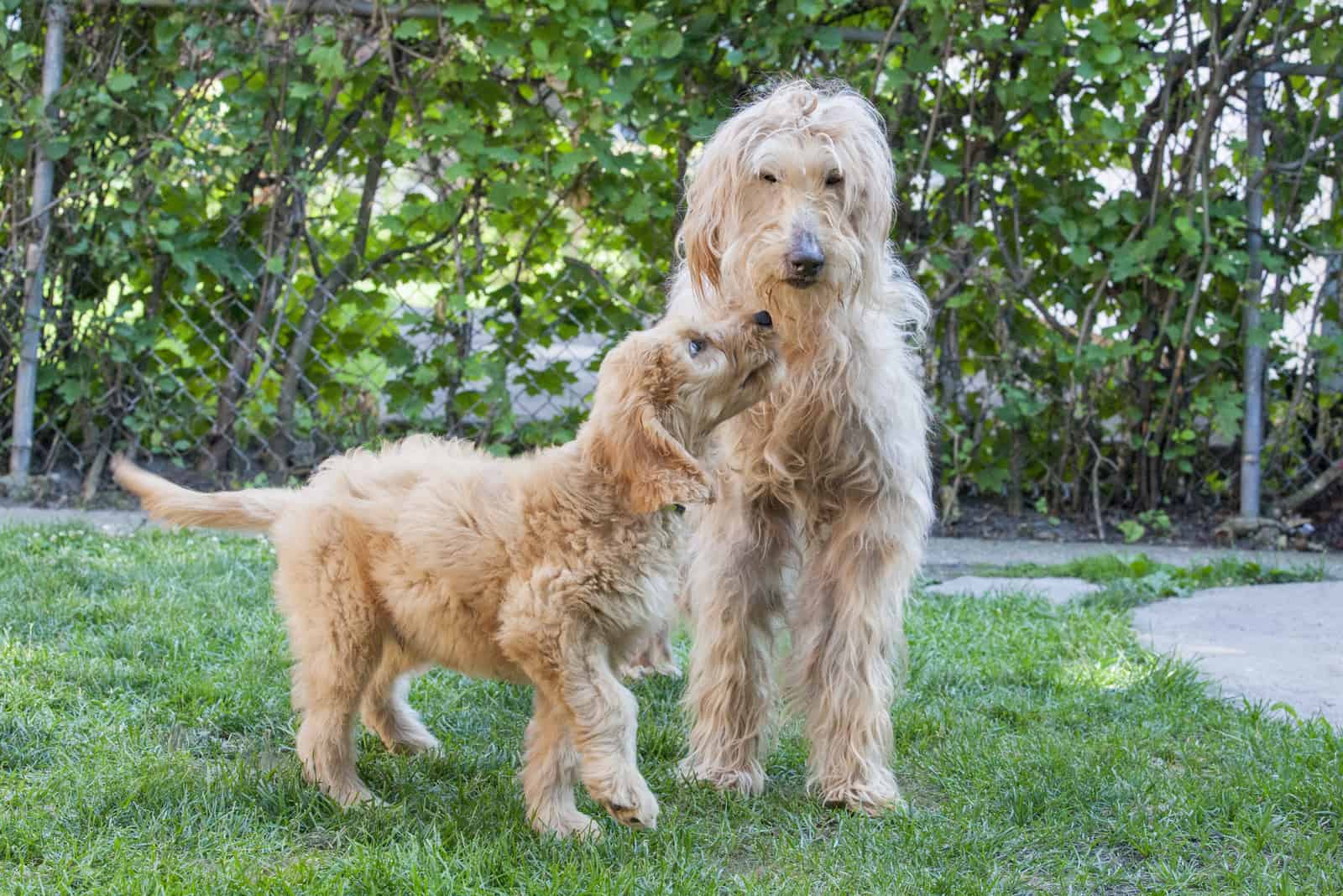
It’s difficult to find a reliable source to answer this question. Unsurprisingly, Doodle forums are filled with people sharing stories about their beloved pooches.
However, many are reluctant to discuss life expectancy as they have just got their new puppy . Few are likely to ask, ‘ how long will my dog live? ‘ as they don’t want to dwell on the subject.
What does come across strongly is the fact that at the age of seven, or even eleven years of age, their furry friends still act like they’re still in puppyhood !
Although it’s purely anecdotal, the general consensus seems to be that the oldest Goldendoodle is around seventeen years old. If this is true, then it’s great news for us all.
Are Goldendoodles High Energy?

Without a doubt, yes! Especially in their adolescent years. It is wise to get them to dog or puppy training classes as soon as you can, as this can help to tame some of the craziness without taking anything away from their loveable nature.
Even so, be prepared for the zoomies.
As puppies, they need nap time as much as anything, as this is when they do a lot of growing. Then, when adolescence hits, they don’t sleep as much, and the fun begins! Invest in some puzzles, brain games, and stimulating toys to keep their mind occupied, and make sure that they get between thirty and sixty minutes of exercise each day.
Obviously, their needs will depend on their size and the type of diet you feed them.
Final Thoughts On The Goldendoodle Lifespan

How long will your Goldendoodle live ? Any answer is just a guess.
But from what we’ve learned, we can expect them to be your loyal, crazy, fun-filled, lovable companion for a long while, possibly up to fifteen years, maybe more.
The main thing is that, however long they stay before heading over the rainbow bridge, we do all we can to make their lives as happy and healthy as we can. It’s your job to do the very best for them.
Using a reputable breeder is a good start. Then you need to choose their diet wisely and limit unhealthy treats, including human food . Table scraps are a recipe for pancreatitis and obesity, and sugary foods should be avoided. Use grooming time to bond with them and check them for tell-tale lumps, often a sign of a tumor.
Check those floppy ears and keep them clean to limit infections. Clean their teeth regularly and get them checked out at the vet a couple of times a year.
Give them the exercise and stimulation they crave, and then make sure you snuggle with them.
Finally, in the words of the great Muhammad Ali, ‘ D o n’t count the days, make the days count .’
Read Next: Goldendoodle Feeding Chart: The Golden Feeding Guide



